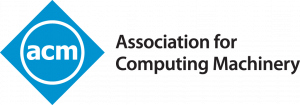ACM publishes, distributes and archives original research and firsthand perspectives from the world’s leading thinkers in computing and information technologies that help computing professionals negotiate the strategic challenges and operating problems of the day. ACM publishes journals, plus newsletters and annual conference proceedings. ACM is also recognized worldwide for its published curricula recommendations, both for colleges and universities and for secondary schools that are increasingly concerned with preparing students for advanced education in the information sciences and technologies.
Communications of the ACM, keeps information technology professionals up-to-date with articles spanning the full spectrum of information technologies in all fields of interest. Communications also carries case studies, practitioner-oriented articles, and regular columns and blogs. The monthly magazine is distributed to all ACM members. ACM Queue is a monthly magazine created by computing professionals for computing professionals that sets out to define future problems with the sort of detail and intelligence that readers in turn can use to sharpen their own thinking. Visit the ACM Digital Library for a complete list of ACM publications.
ACM also provides the ACM Digital Library, the definitive online resource for computing professionals. The DL provides access to ACM’s collection of publications and bibliographic citations from the universe of published IT literature. With its personalized online services and extensive search capabilities, the Digital Library represents ACM’s vision of an all-electronic publishing program.
The Digital Library contains the citations and full text of articles, representing all of ACM’s journals, newsletters, and proceedings. Each citation contains links to other works by the same author; clickable references to their original sources; links to similar articles and critical reviews, if available; and digital object identifiers (DOIs) to easily manage electronic linkages to vendors.
In addition, the DL consists of a bibliographic database of more than a million citations from a broad range of information technology publications and publishers. Many of these citations contain abstracts and/or reference sections as well.


